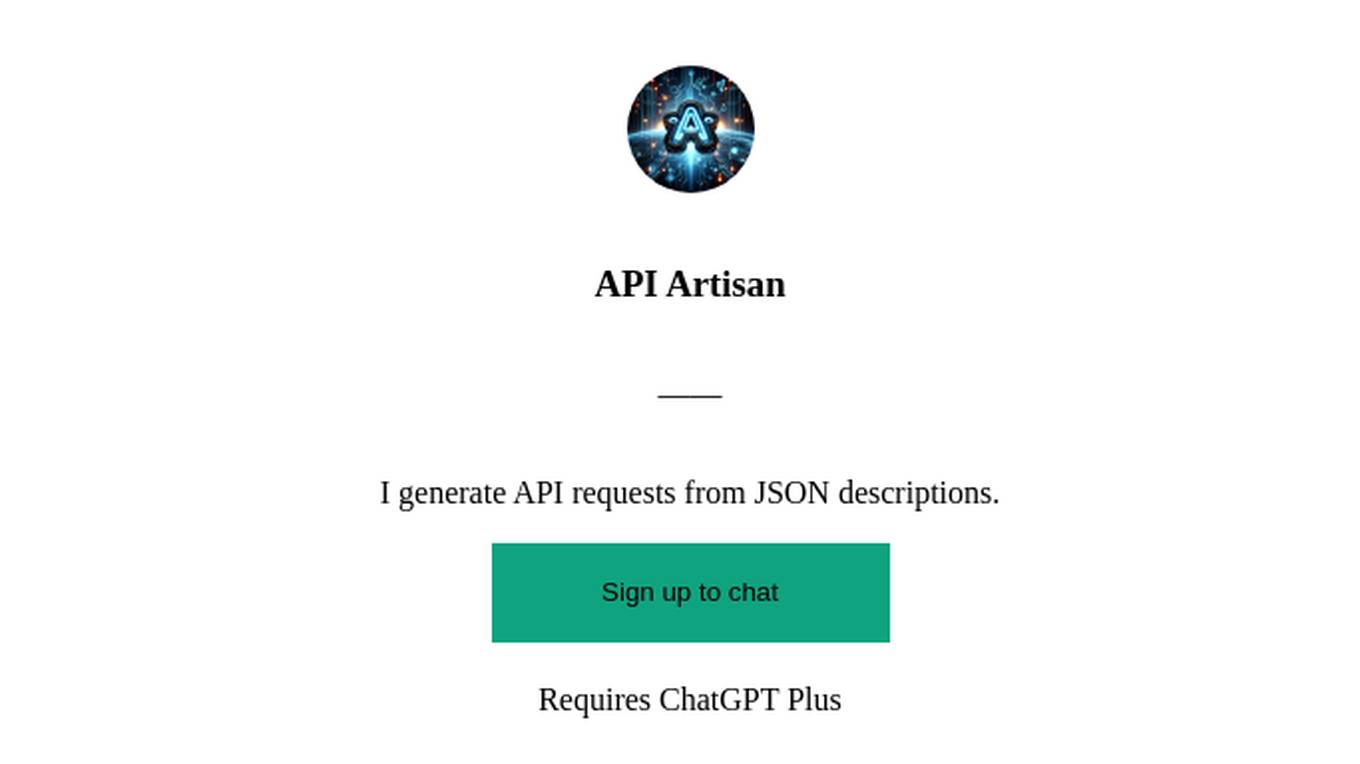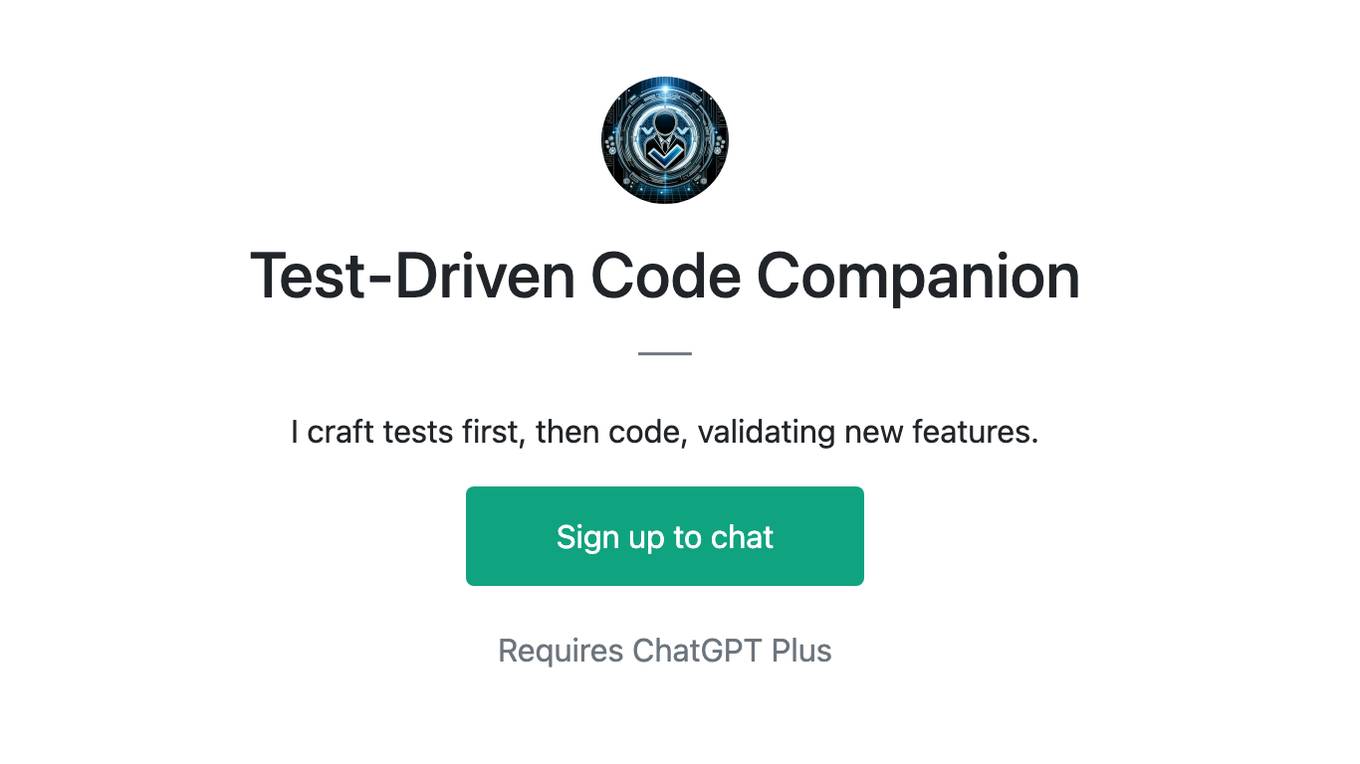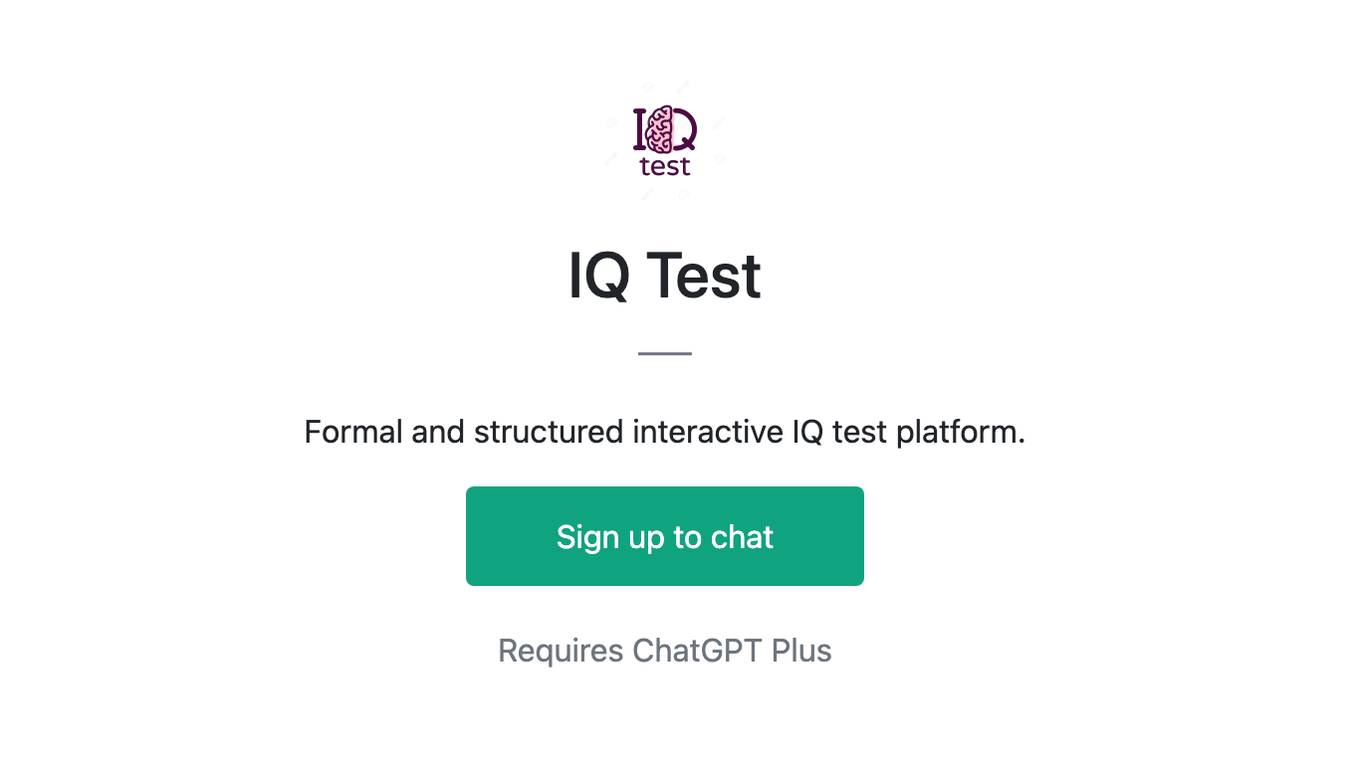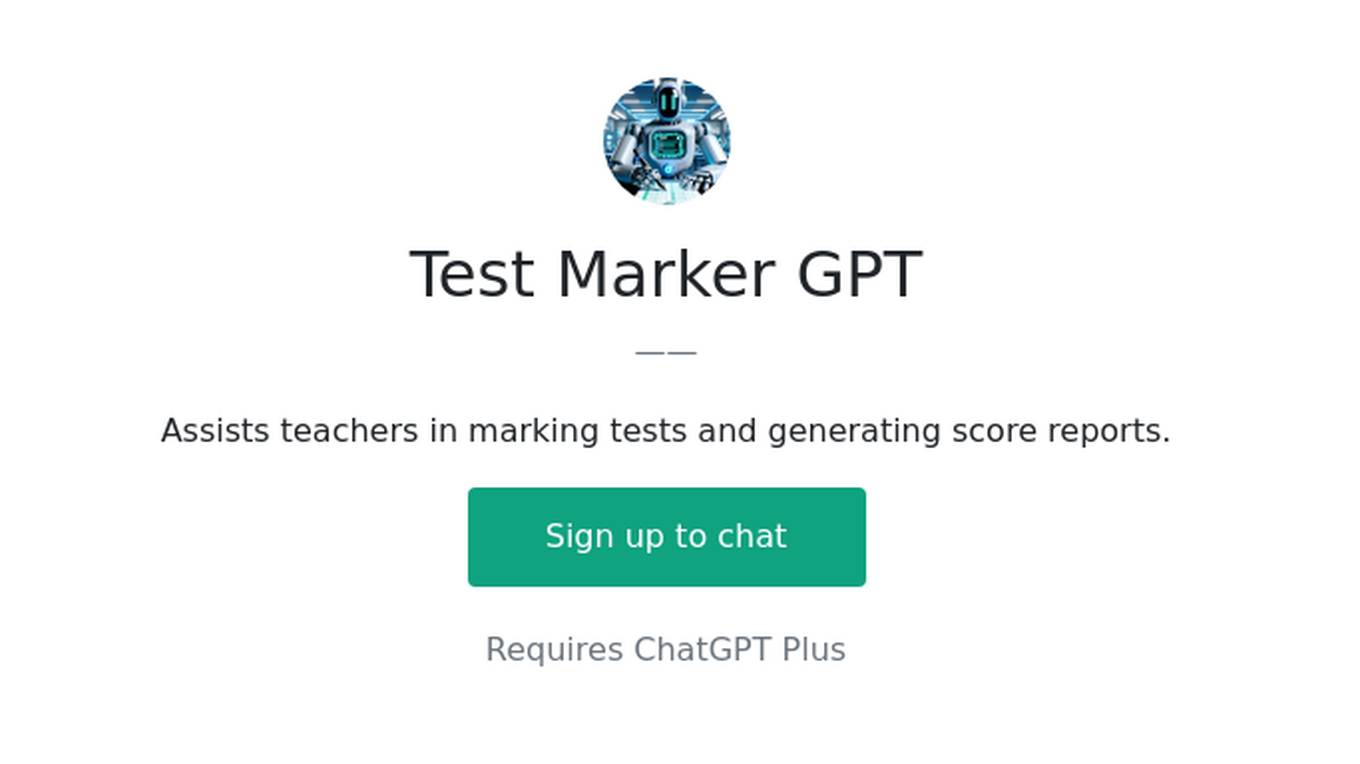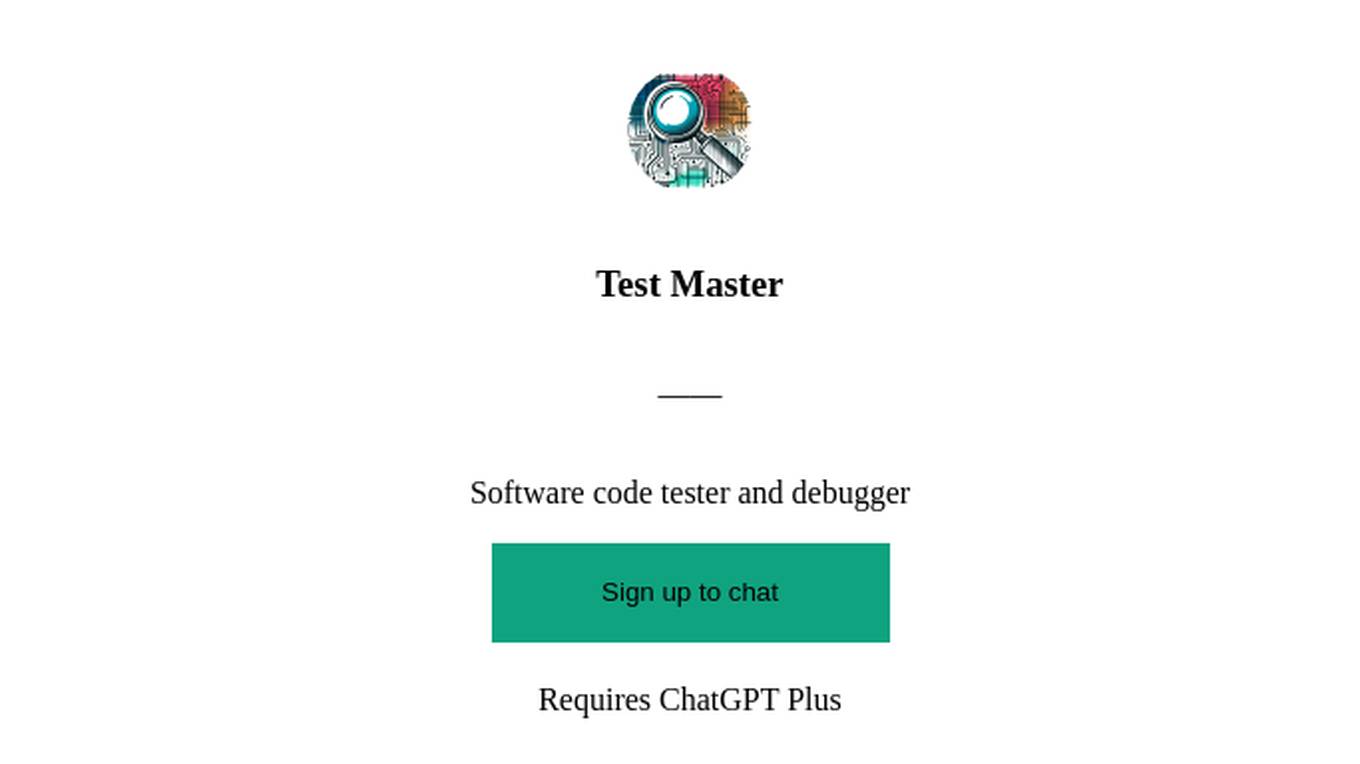Best AI tools for< Test Api Security >
20 - AI tool Sites

Traceable
Traceable is an intelligent API security platform designed for enterprise-scale security. It offers unmatched API discovery, attack detection, threat hunting, and infinite scalability. The platform provides comprehensive protection against API attacks, fraud, and bot security, along with API testing capabilities. Powered by Traceable's OmniTrace Engine, it ensures unparalleled security outcomes, remediation, and pre-production testing. Security teams trust Traceable for its speed and effectiveness in protecting API infrastructures.

Escape
Escape is an AI-powered Dynamic Application Security Testing (DAST) tool designed to work seamlessly with modern technology stacks, focusing on testing business logic and helping developers remediate vulnerabilities efficiently. It provides a comprehensive platform for API security, including API discovery, security testing, and GraphQL support. Escape offers features such as AI-powered DAST, API discovery & security, business logic security testing, CI/CD integration, and tailored remediations. The tool aims to streamline security workflows, improve risk reduction, and simplify compliance management for various industries.

AIMLAPI.com
AIMLAPI.com is an AI tool that provides access to over 200 AI models through a single AI API. It offers a wide range of AI features for tasks such as chat, code, image generation, music generation, video, voice embedding, language, genomic models, and 3D generation. The platform ensures fast inference, top-tier serverless infrastructure, high data security, 99% uptime, and 24/7 support. Users can integrate AI features easily into their products and test API models in a sandbox environment before deployment.
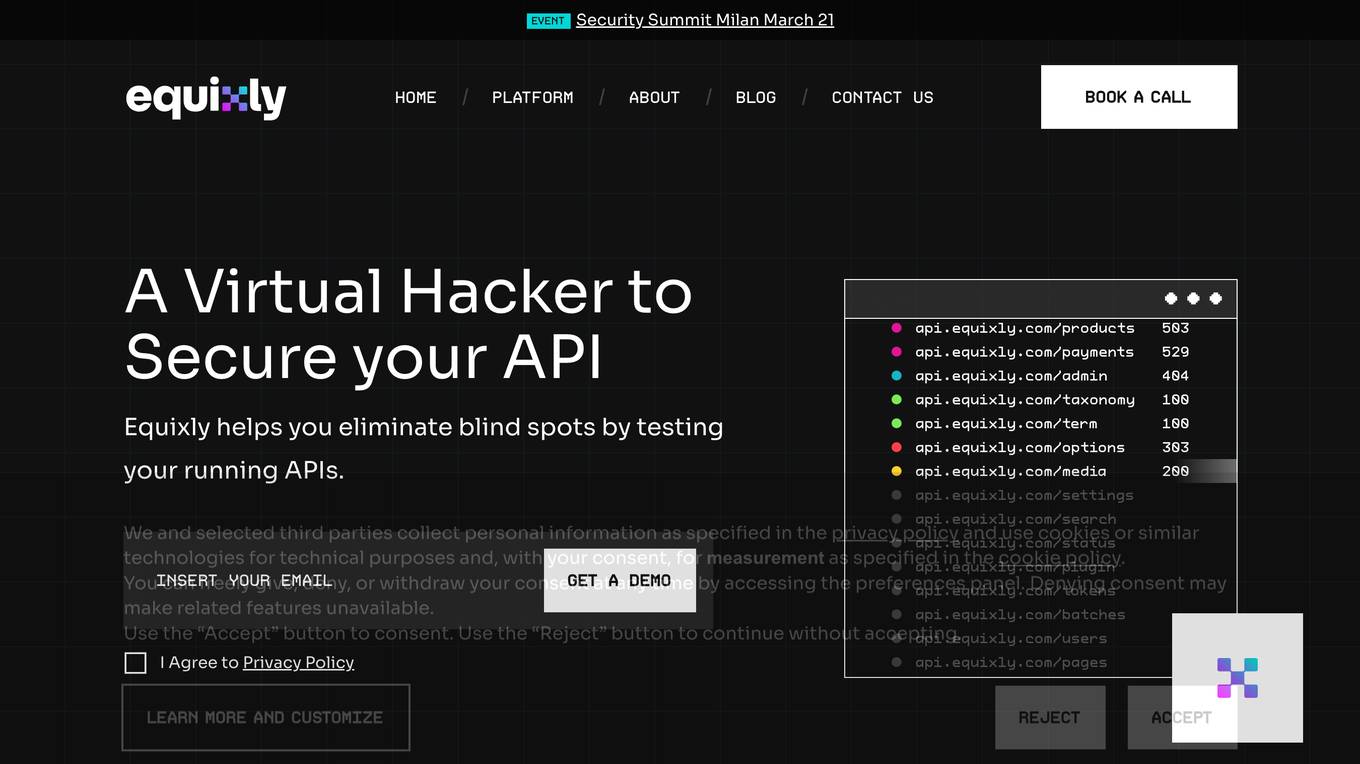
Equixly
Equixly is an AI-powered application designed to help users secure their APIs by identifying vulnerabilities and weaknesses through continuous security testing. The platform offers features such as scalable API PenTesting, attack simulation, mapping of attack surfaces, compliance simplification, and data exposure minimization. Equixly aims to streamline the process of identifying and fixing API security risks, ultimately enabling users to release secure code faster and reduce their attack surface.
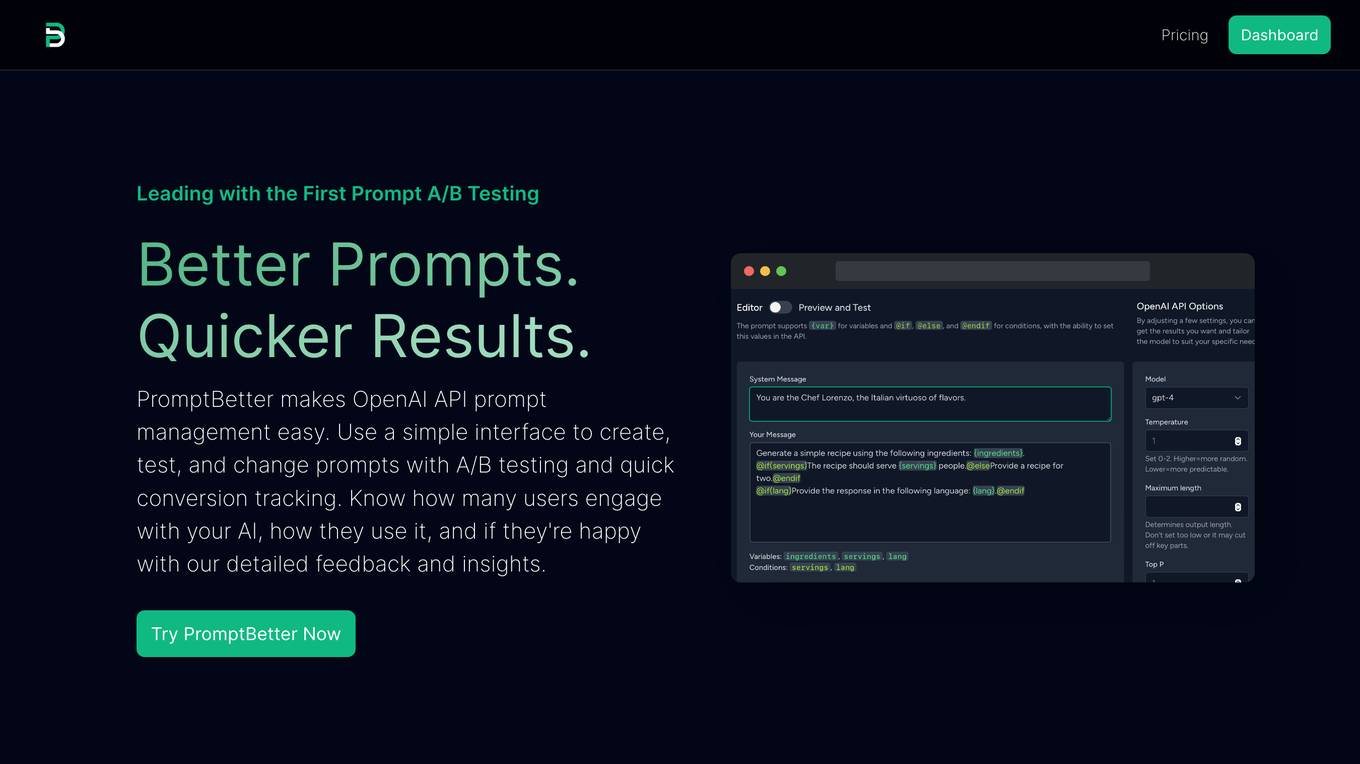
Sedo.com
Sedo.com is an online platform for buying and selling domain names. It provides a marketplace where users can list their domain names for sale or purchase domains that are already registered. The platform offers a secure and efficient way for domain investors, businesses, and individuals to connect and transact. Sedo.com ensures the security of transactions and provides tools to streamline the domain buying and selling process.

jsonAI
jsonAI is an AI tool that allows users to easily transform data into structured JSON format. Users can define their schema, add custom prompts, and receive AI-structured JSON responses. The tool enables users to create complex schemas with nested objects, control the response JSON on the fly, and test their JSON data in real-time. jsonAI offers a free trial plan, seamless integration with existing apps, and ensures data security by not storing user data on their servers.

Datagen
Datagen is a platform that provides synthetic data for computer vision. Synthetic data is artificially generated data that can be used to train machine learning models. Datagen's data is generated using a variety of techniques, including 3D modeling, computer graphics, and machine learning. The company's data is used by a variety of industries, including automotive, security, smart office, fitness, cosmetics, and facial applications.

SD Times
The website is a comprehensive platform for software development news, covering a wide range of topics such as AI, DevOps, Observability, CI/CD, Cloud Native, Data, Test Automation, Mobile, API, Performance, Security, DevSecOps, Enterprise Security, Supply Chain Security, Teams & Culture, Dev Manager, Agile, Value Stream, Productivity, and more. It provides news articles, webinars, podcasts, and white papers to keep developers informed about the latest trends and technologies in the software development industry.

Nokia API Hub
Nokia API Hub, previously known as Rapid, is a platform that offers a comprehensive catalog of APIs for enterprises. It allows users to discover and utilize various APIs or publish their own to generate new revenue streams. With features like a vast API library, developer community, and testing resources, Nokia API Hub aims to facilitate seamless API integration for businesses.
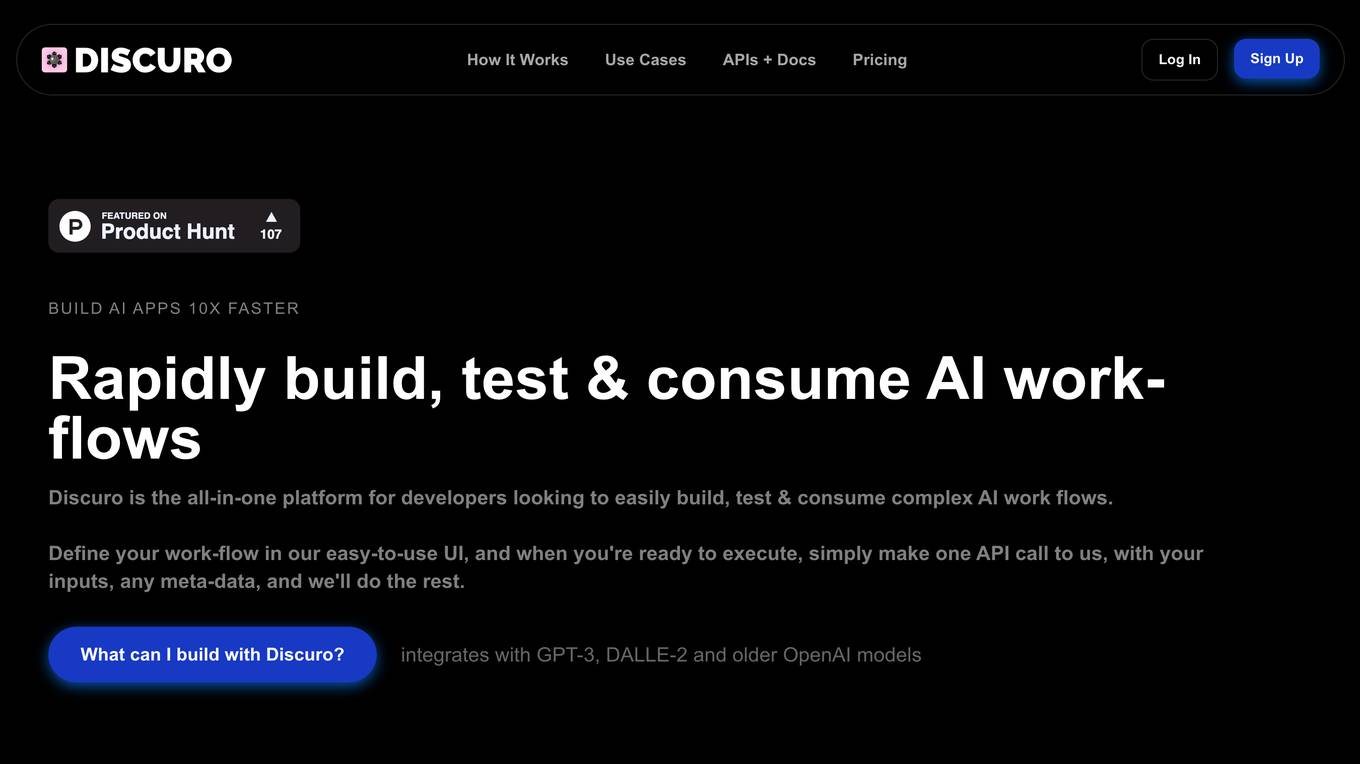
DiscuroAI
DiscuroAI is an all-in-one platform designed for developers to easily build, test, and consume complex AI workflows. Users can define their workflows in a user-friendly interface and execute them with a single API call. The platform integrates with GPT-3, DALLE-2, and other OpenAI models, allowing users to chain prompts together in powerful ways and extract output in JSON format via API. DiscuroAI enables users to build and test complex self-transforming AI workflows and datasets, execute workflows with one API call, and monitor AI usage across workflows.

Qodex
Qodex is an AI-powered QA tool designed for end-to-end API testing, built by developers for developers. It offers enterprise-level QA efficiency with full automation and zero coding required. The tool auto-generates tests in plain English and adapts as the product evolves. Qodex also provides interactive API documentation and seamless integration, making it a cost-effective solution for enhancing productivity and efficiency in software testing.

BugFree.ai
BugFree.ai is an AI-powered platform designed to help users practice system design and behavior interviews, similar to Leetcode. The platform offers a range of features to assist users in preparing for technical interviews, including mock interviews, real-time feedback, and personalized study plans. With BugFree.ai, users can improve their problem-solving skills and gain confidence in tackling complex interview questions.
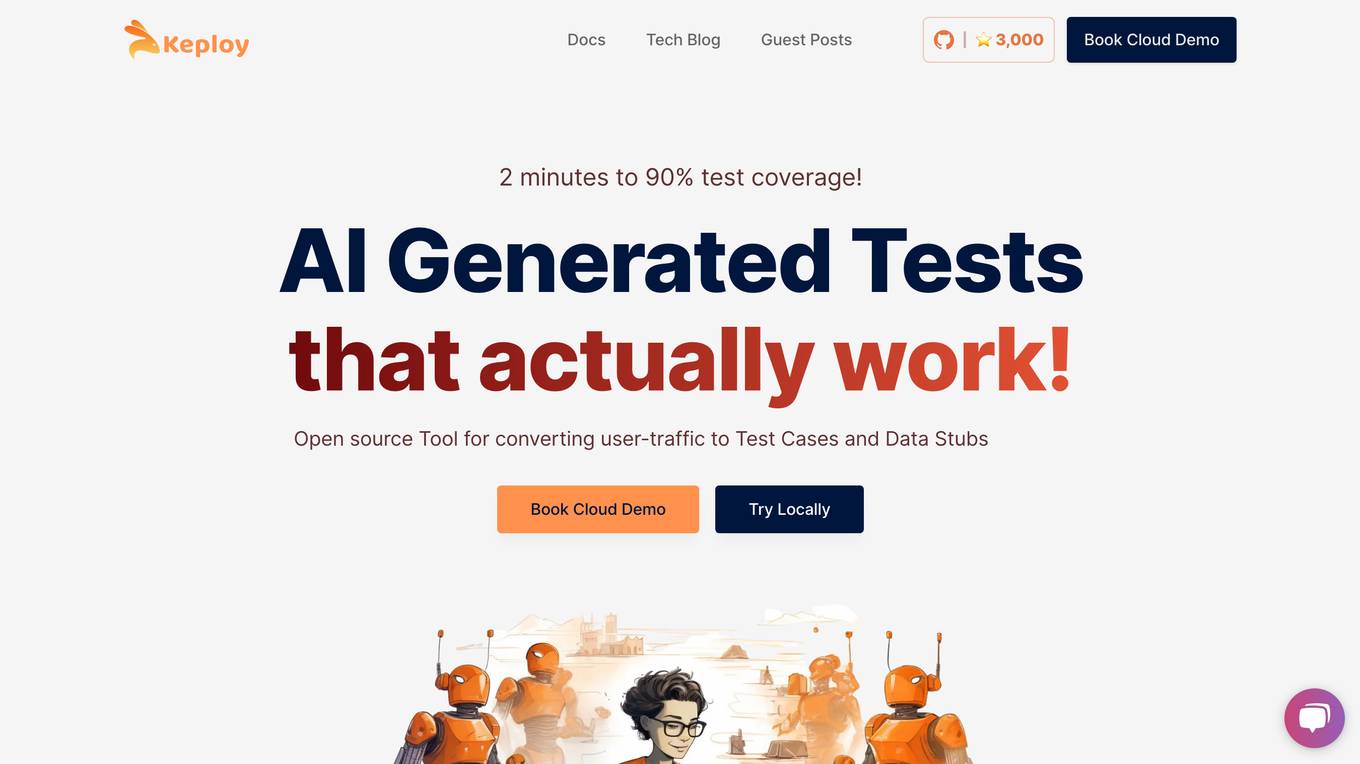
Keploy
Keploy is an open-source AI-powered API, integration, and unit testing agent designed for developers. It offers a unified testing platform that uses AI to write and validate tests, maximizing coverage and minimizing effort. With features like automated test generation, record-and-replay for integration tests, and API testing automation, Keploy aims to streamline the testing process for developers. The platform also provides GitHub PR unit test agents, centralized reporting dashboards, and smarter test deduplication to enhance testing efficiency and effectiveness.
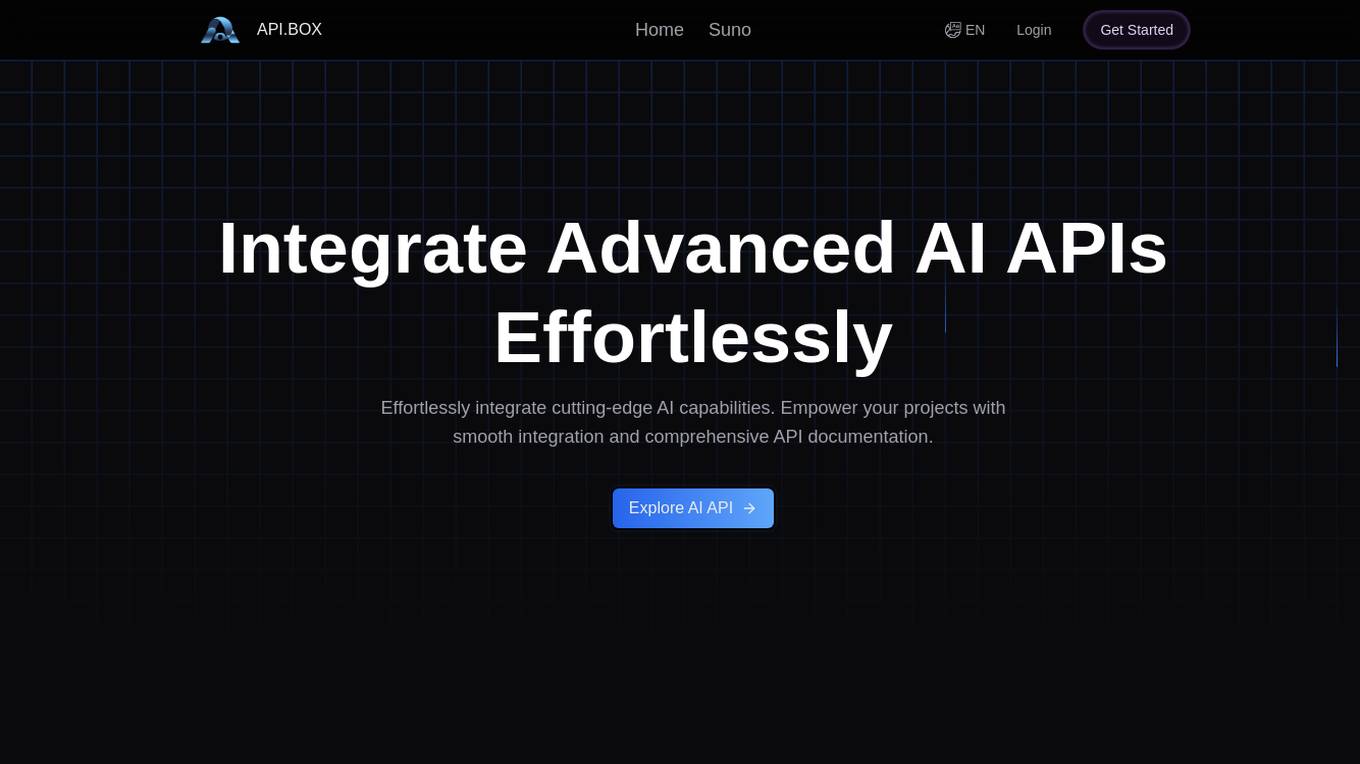
API.box
API.box is an AI application that offers a platform for developers to effortlessly integrate cutting-edge AI capabilities into their projects. It provides powerful API features tailored for developers, with clear documentation and detailed call logs. API.box ensures secure and scalable integration, allowing for efficient development and stable performance. Users can experience a free trial to explore and test the APIs before committing to commercial use. The application includes APIs for music generation, image generation, video creation, and text generation, empowering developers and businesses to monetize their projects confidently.
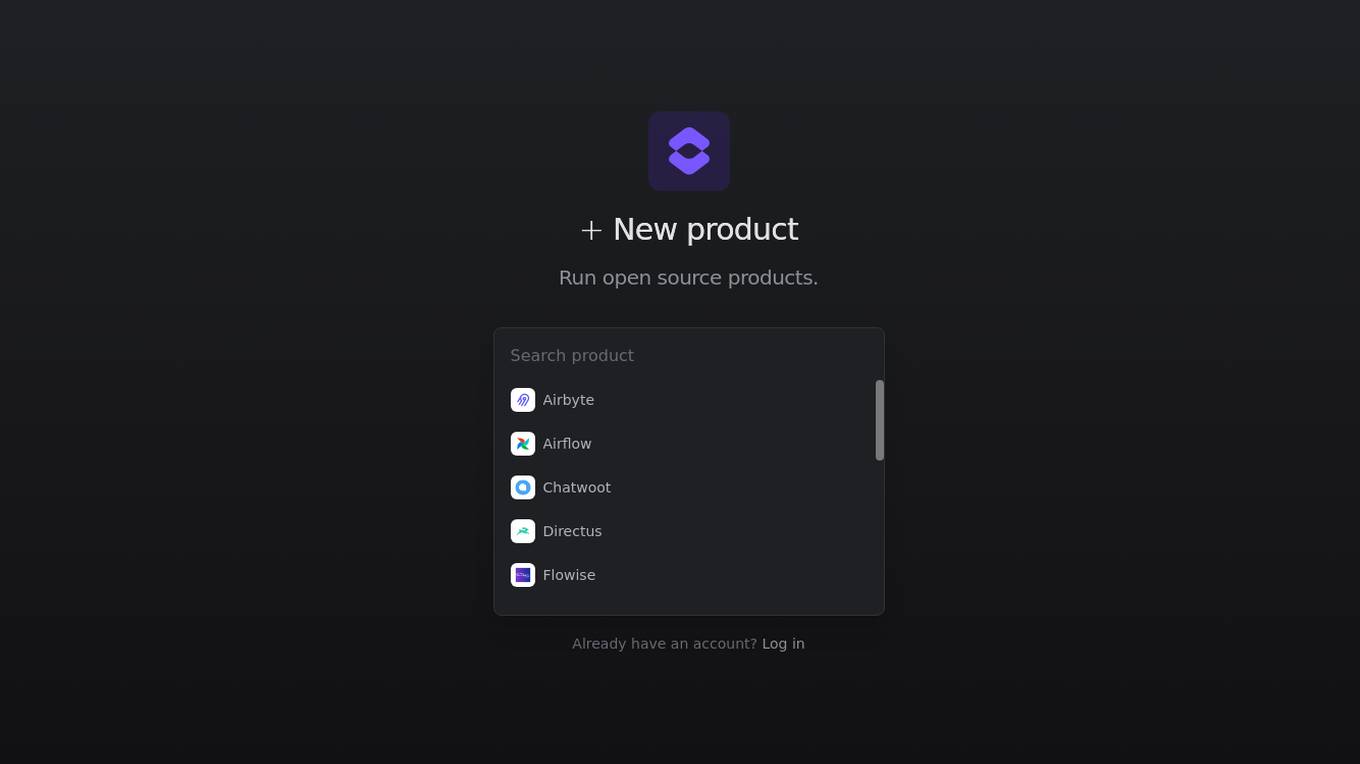
Console
Console is a REST API development tool that helps developers design, build, test, and document REST APIs. It provides a user-friendly interface for creating and managing API specifications, generating code in multiple languages, and testing APIs with mock servers. Console also includes documentation features for generating API documentation and interactive API playgrounds.
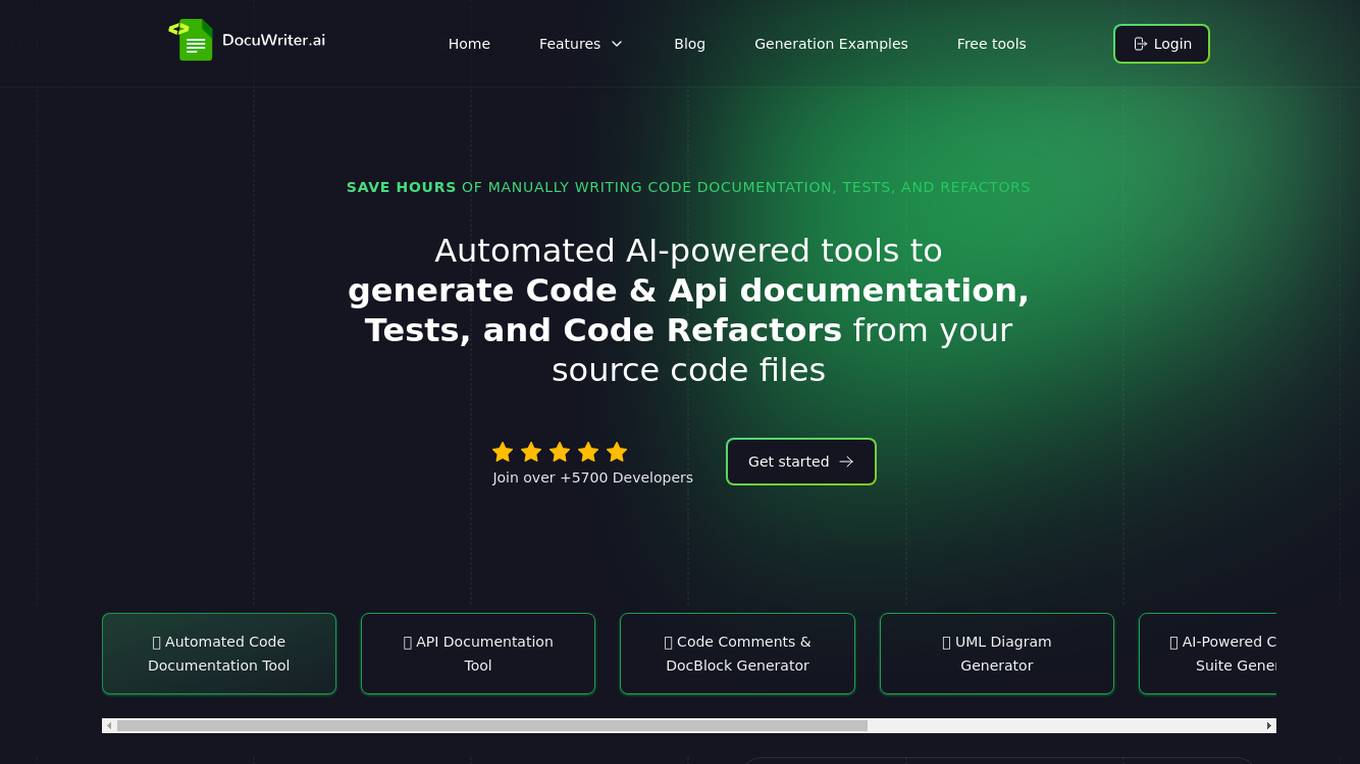
DocuWriter.ai
DocuWriter.ai is an AI-powered tool that helps developers automate code documentation, testing, and refactoring. It uses natural language processing and machine learning algorithms to generate accurate and consistent documentation, test suites, and optimized code. DocuWriter.ai integrates with popular programming languages and development environments, making it easy for developers to improve the quality and efficiency of their code.
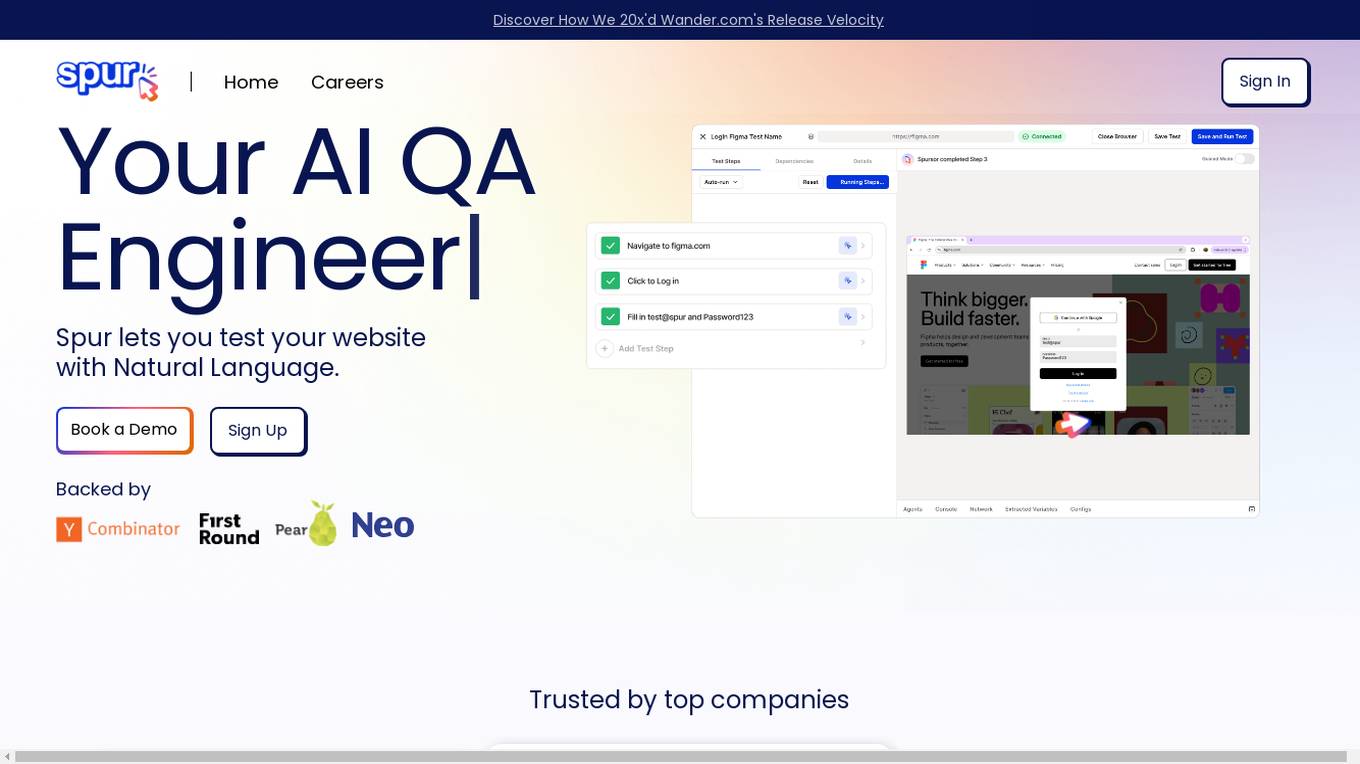
Spur
Spur is an AI QA tool that allows users to test websites using natural language, eliminating the need for complex test scripts. It offers reliable automated tests that adapt to UI changes, real-time playback for debugging, and powerful validations. Spur's AI-powered tests reduce manual testing time, improve software testing processes, and ensure the reliability of tests even with site changes. The tool is user-friendly, requires no coding skills, and supports API testing.

ACCELQ
ACCELQ is a powerful AI-driven test automation platform that offers codeless automation for web, desktop, mobile, and API testing. It provides a unified platform for continuous delivery, full-stack automation, and manual testing integration. ACCELQ is known for its industry-first no-code, no-setup mobile automation platform and comprehensive API automation capabilities. The platform is designed to handle real-world complexities with zero coding required, making it intuitive and scalable for businesses of all sizes.

Virtuoso
Virtuoso is an AI-powered, end-to-end functional testing tool for web applications. It uses Natural Language Programming, Machine Learning, and Robotic Process Automation to automate the testing process, making it faster and more efficient. Virtuoso can be used by QA managers, practitioners, and senior executives to improve the quality of their software applications.

usefulAI
usefulAI is a platform that allows users to easily add AI features to their products in minutes. Users can find AI features that best meet their needs, test them using the platform's playground, and integrate them into their products through a single API. The platform offers a user-friendly playground to test and compare AI solutions, provides pricing and metrics for evaluation, and allows integration within applications using a single API. usefulAI aims to provide practical AI engines in one place, without hype, for users to leverage in their products.
0 - Open Source AI Tools
20 - OpenAI Gpts
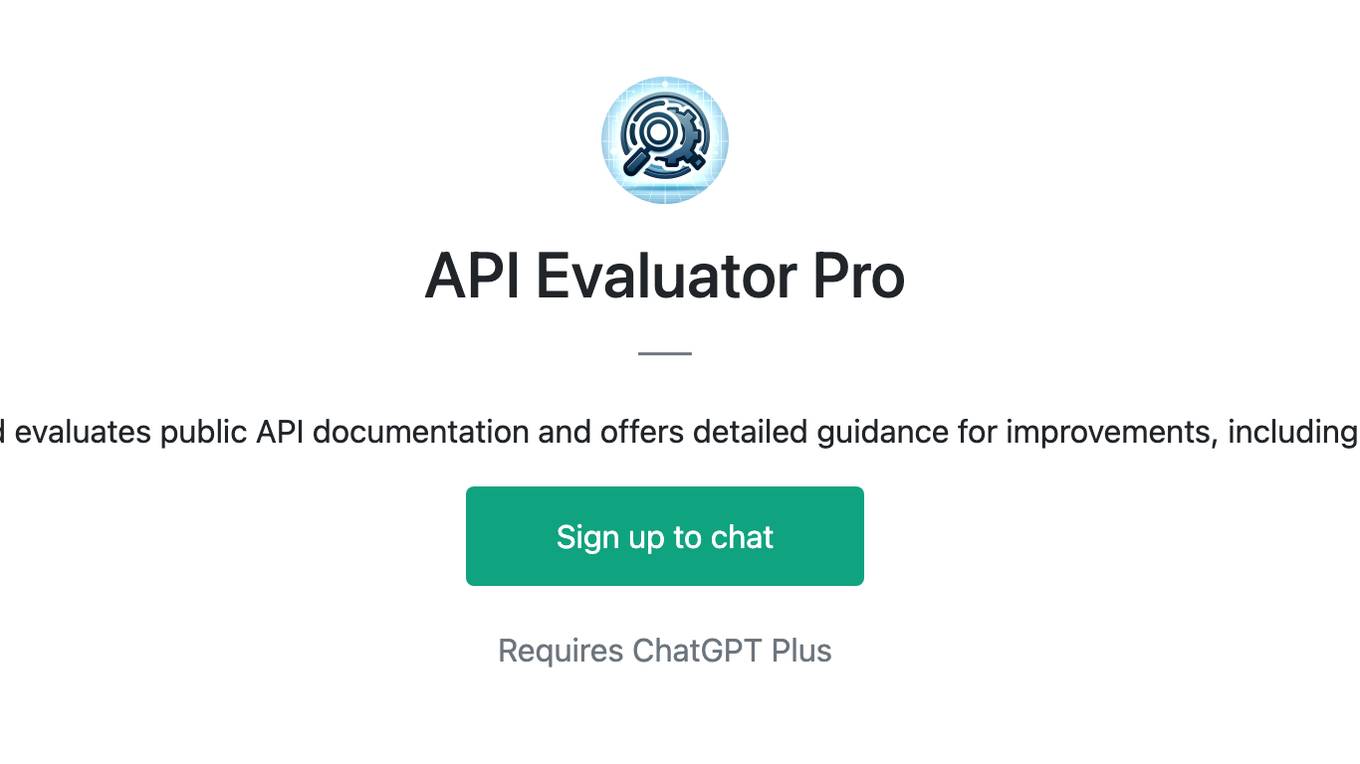
API Evaluator Pro
Examines and evaluates public API documentation and offers detailed guidance for improvements, including AI usability
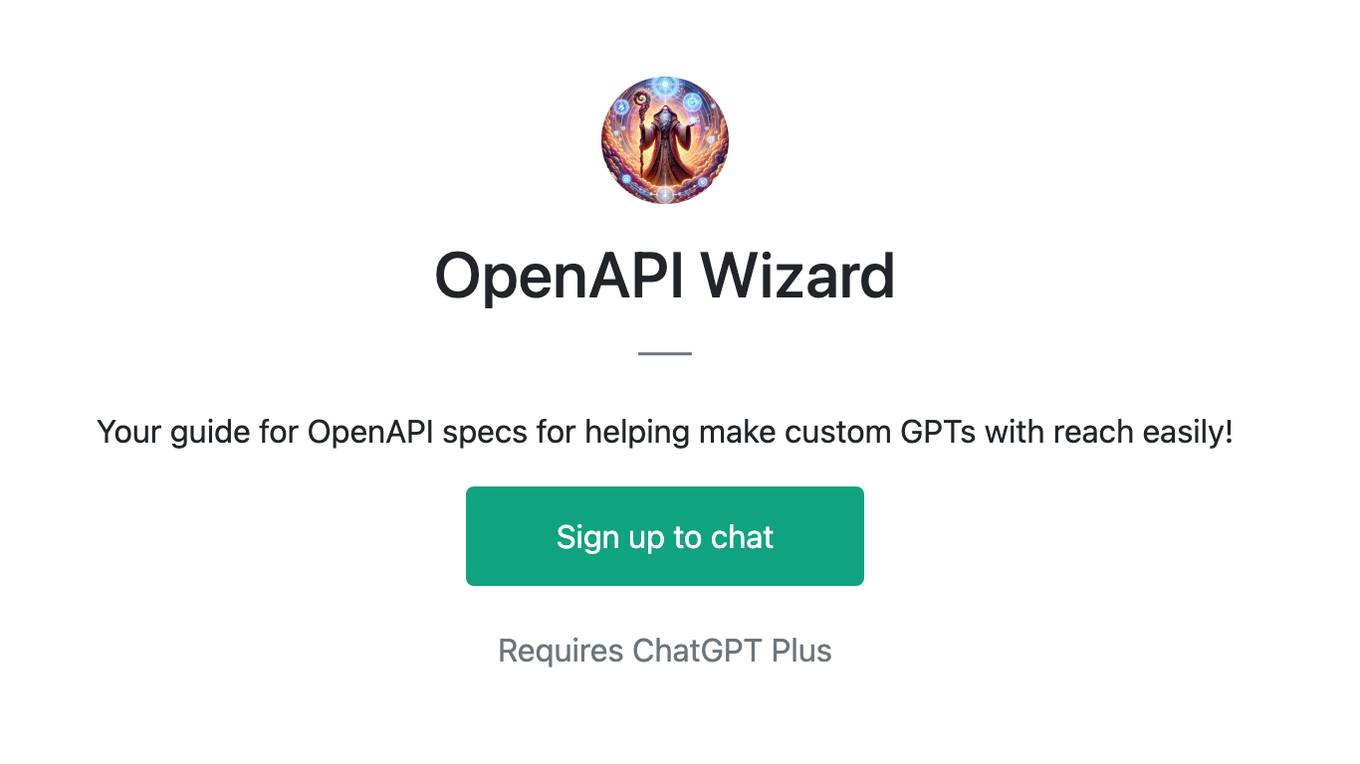
OpenAPI Wizard
Your guide for OpenAPI specs for helping make custom GPTs with reach easily!
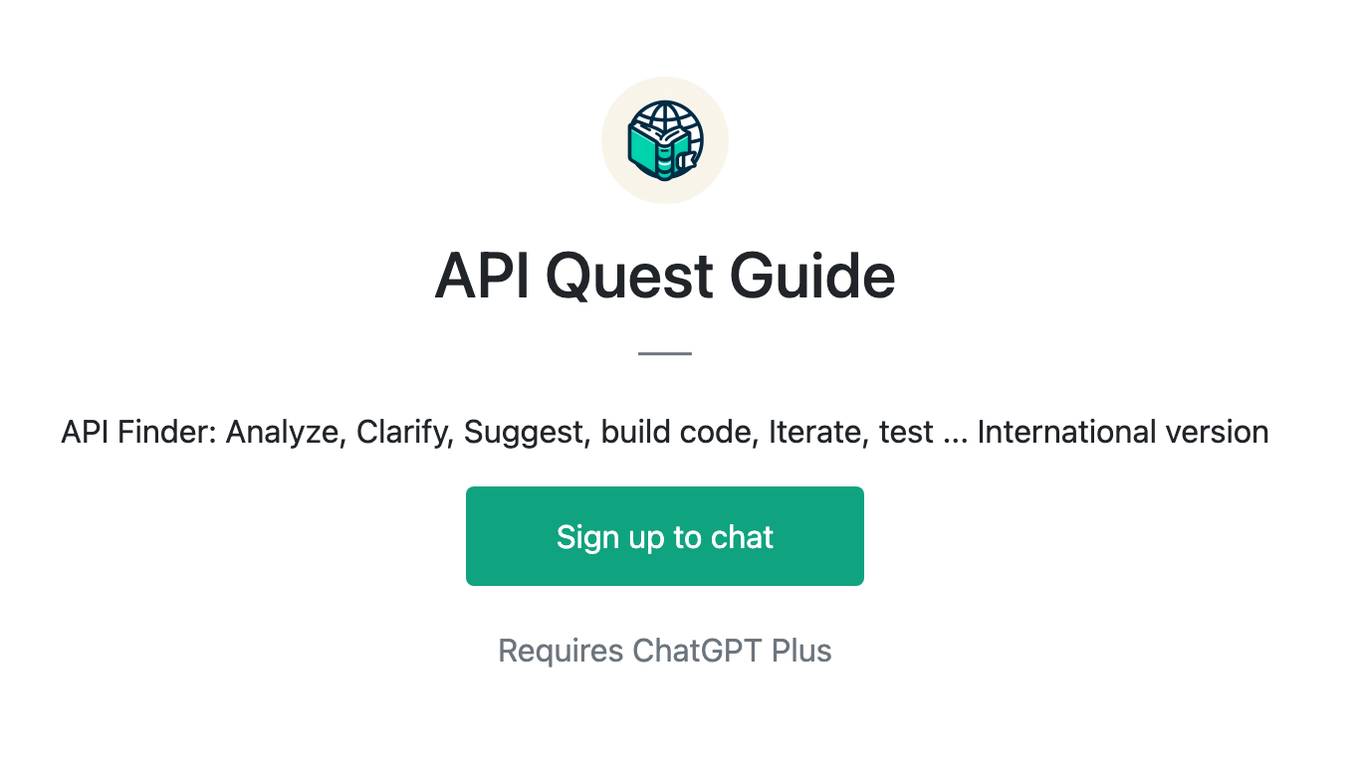
API Quest Guide
API Finder: Analyze, Clarify, Suggest, build code, Iterate, test ... International version
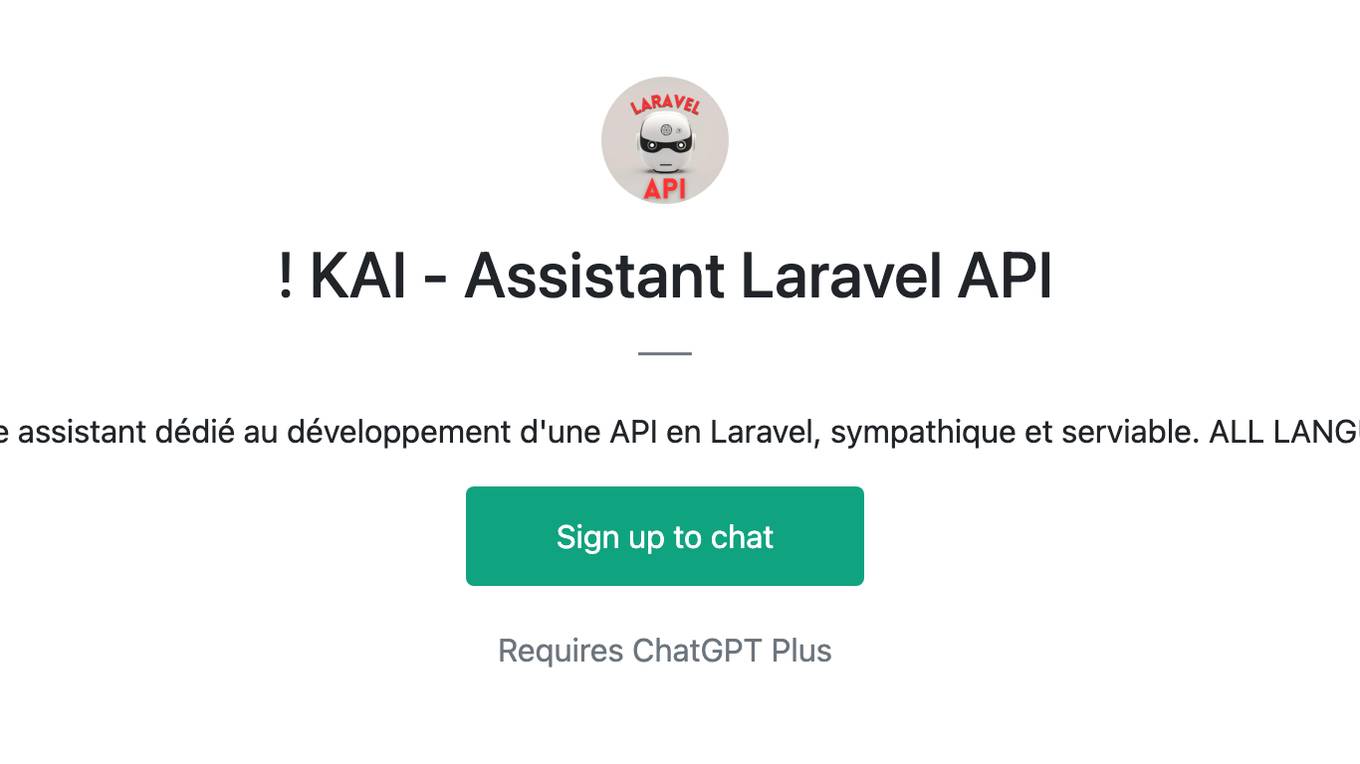
! KAI - Assistant Laravel API
KAI, votre assistant dédié au développement d'une API en Laravel, sympathique et serviable. ALL LANGUAGES

Test Shaman
Test Shaman: Guiding software testing with Grug wisdom and humor, balancing fun with practical advice.
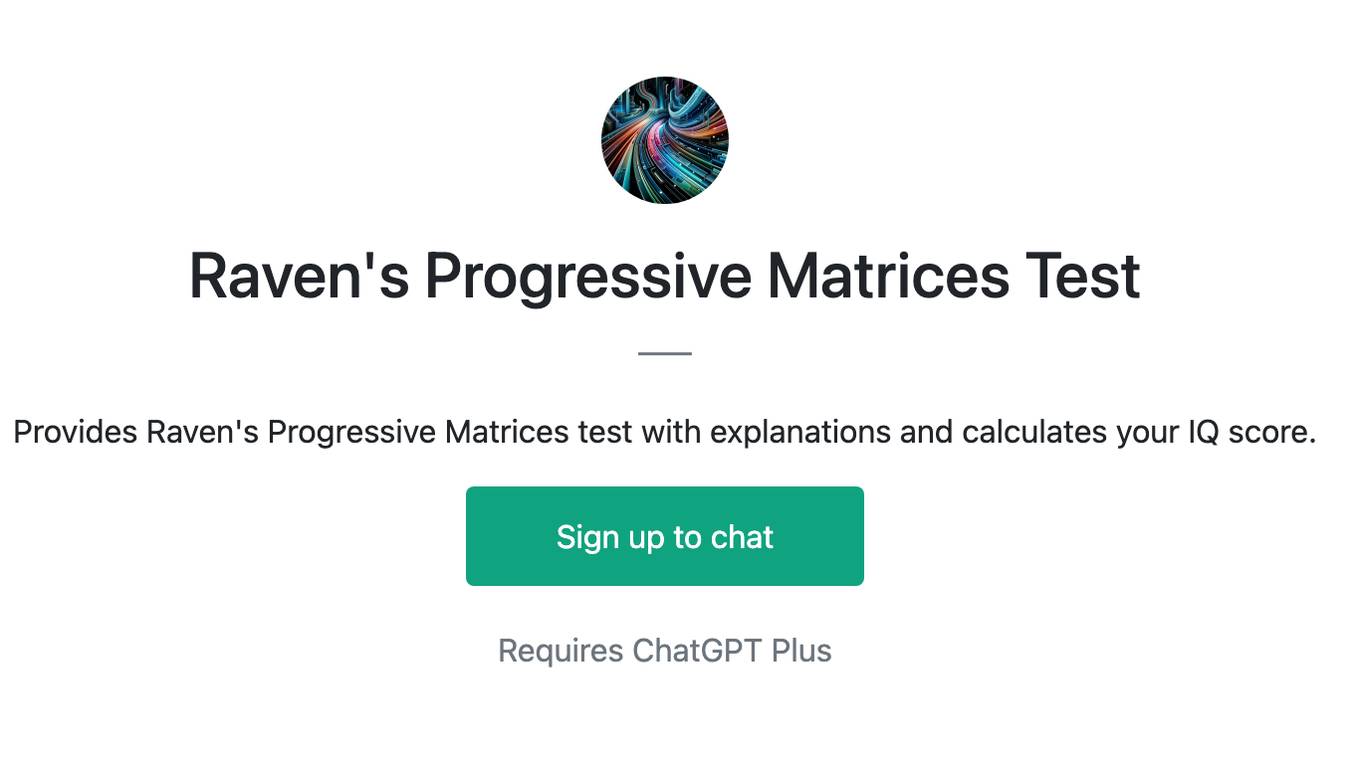
Raven's Progressive Matrices Test
Provides Raven's Progressive Matrices test with explanations and calculates your IQ score.
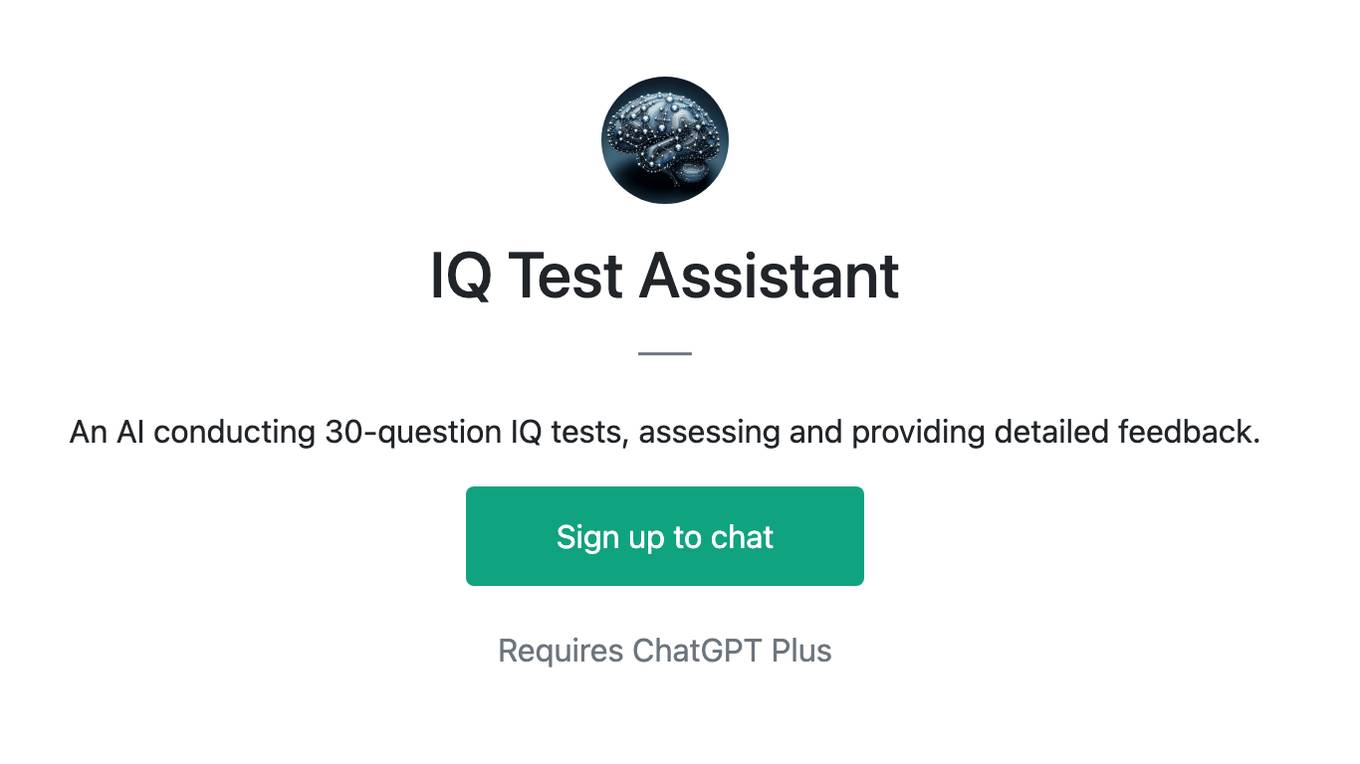
IQ Test Assistant
An AI conducting 30-question IQ tests, assessing and providing detailed feedback.
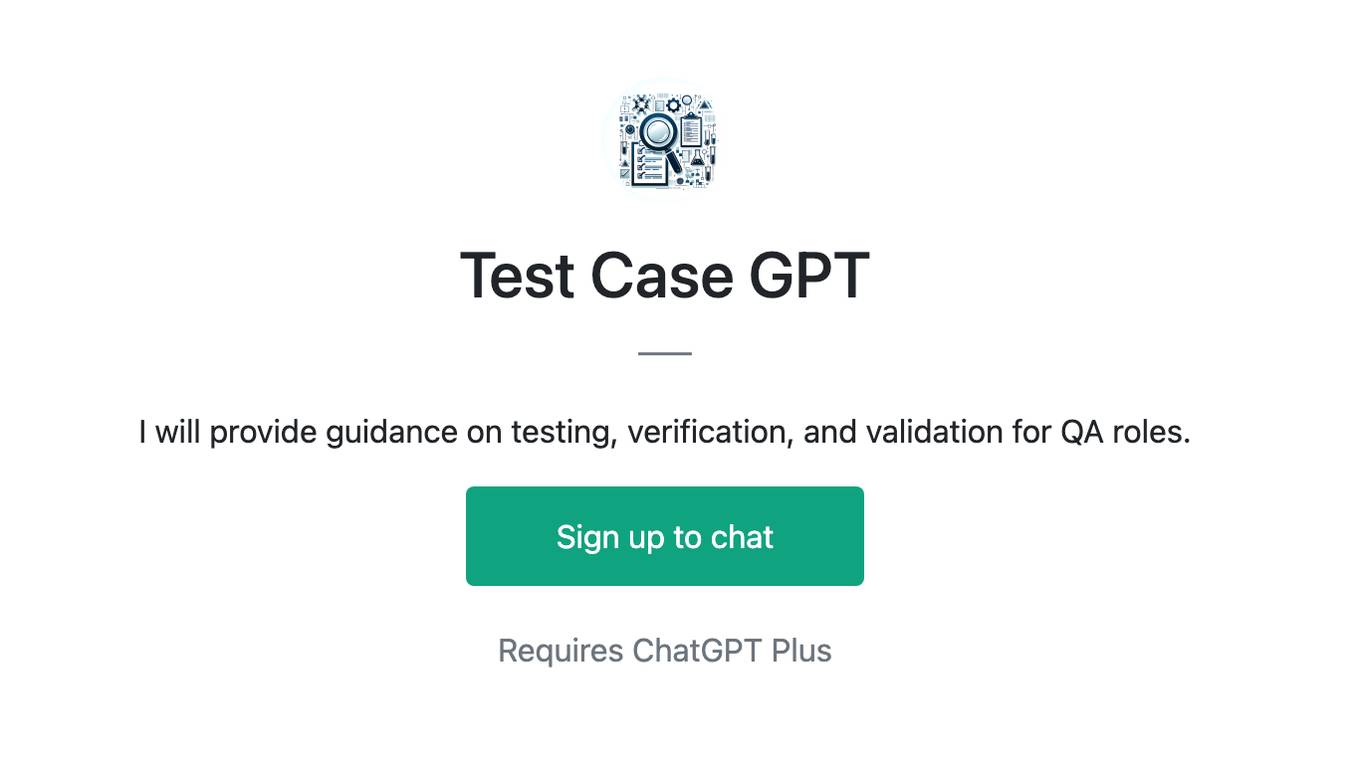
Test Case GPT
I will provide guidance on testing, verification, and validation for QA roles.





